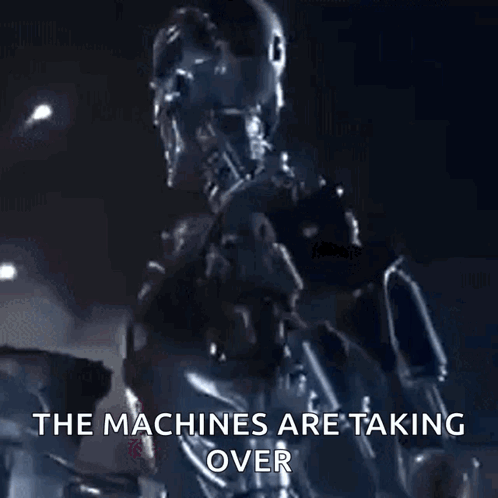In recent years, artificial intelligence (AI) has transformed the way we live, work, and communicate. From virtual assistants and automated customer service to autonomous vehicles and AI-driven data analysis, technology has advanced to the point where it can perform many tasks previously reserved for humans. This rapid evolution has led to discussions about the impact of AI on the job market, particularly concerning job displacement and loss. However, while AI might eliminate certain roles, it also paves the way for new opportunities and jobs that don't yet exist. In this article, we'll explore both sides of the AI job equation: the threat of job loss and the promise of new employment avenues.

The Threat of Job Loss
AI's impact on the job market is profound. Automation and machine learning technologies have enabled companies to streamline operations and reduce costs by replacing human labor with AI systems. This shift has primarily affected jobs involving routine and repetitive tasks. Manufacturing, logistics, customer service, and data entry are some sectors where automation has led to significant job losses.
A study by the McKinsey Global Institute estimates that up to 375 million workers worldwide could be displaced by automation by 2030. Similarly, a 2020 World Economic Forum report suggests that automation could replace 85 million jobs in the next five years. Jobs that rely heavily on predictable tasks, like assembly line work, telemarketing, and certain clerical roles, are among those at highest risk.
AI can also disrupt traditionally white-collar jobs. With advancements in natural language processing and data analysis, AI is increasingly capable of handling more complex tasks, such as legal document review, financial analysis, and even some medical diagnoses. This raises concerns about the future of professions like paralegals, accountants, and radiologists.
The Emergence of New Job Opportunities
While AI presents challenges to traditional employment, it also offers new opportunities and fosters the creation of jobs that didn't exist before. As AI technologies evolve, they demand a new set of skills and expertise, leading to the emergence of roles focused on AI development, management, and maintenance.
AI and Data Science
The growth of AI has spurred demand for data scientists, machine learning engineers, and AI specialists. These professionals are responsible for designing, building, and maintaining AI systems. As companies increasingly rely on data-driven insights, the need for skilled data analysts and scientists will continue to rise.
Ethical AI and Bias Mitigation
With AI's growing influence, ethical concerns have come to the forefront. Issues like algorithmic bias, data privacy, and the ethical use of AI require professionals who can navigate the complex intersection of technology and ethics. Roles such as AI ethicists, fairness auditors, and data privacy officers are becoming more common as organizations seek to ensure responsible AI deployment.
AI-Enhanced Creativity and Human-Centered Design
AI is also creating opportunities in creative and design-focused fields. As AI systems become better at automating routine tasks, human creativity and innovation become more valuable. Jobs that emphasize creativity, such as AI-assisted content creation, human-centered design, and augmented reality development, are on the rise. These roles focus on leveraging AI to enhance, not replace, human creativity.
AI and Human Augmentation
Another area of growth is human augmentation. AI can enhance human capabilities in various ways, from wearable technology that monitors health to exoskeletons that augment physical strength. This sector is likely to create new jobs in AI-enhanced healthcare, robotics, and assistive technologies.
The Human Element in AI
Despite AI's growing capabilities, there will always be a need for human oversight and interaction. Jobs involving empathy, communication, and emotional intelligence are less likely to be automated. Fields like counseling, therapy, and education will continue to require a human touch, even as AI enhances these roles with new tools and resources.
Conclusion
AI is transforming the job market, leading to both job loss and the emergence of new opportunities. While the displacement of certain roles is inevitable, the evolution of AI also opens doors to innovative careers that require a unique blend of technical and human skills. As society navigates this transition, it's crucial to focus on reskilling and upskilling workers, fostering ethical AI practices, and embracing the potential for new job opportunities. By doing so, we can create a balanced future where AI and humans work together to drive progress and innovation.
Posted Using InLeo Alpha